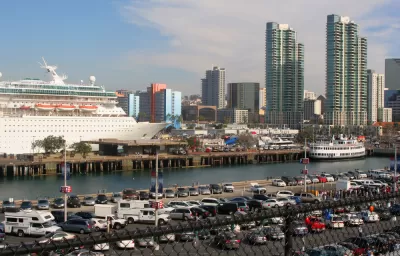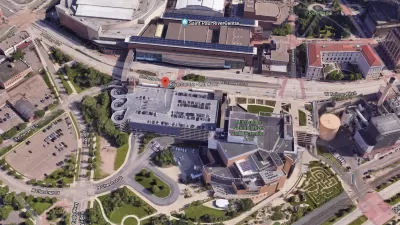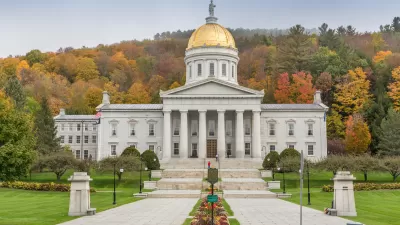A proposed code amendment would expand parking reforms implemented by San Diego in 2019.

Almost exactly two years after San Diego voted to eliminate parking requirements for new multi-family residential developments in designated Transit Priority Areas around the city, a new proposal would expand parking reform to "non-residential land uses" in those same areas.
An article by Dan Griffin provides the only existing local news coverage of the proposed change, which appeared before the city Planning Commission on June 3 and is expected for a City Council vote in July. Griffin's article mostly shares the viewpoints of local business owners about perceptions of an existing lack of parking near their neighborhoods, although one restaurant owner is quoted saying that the city's outdoor dining program allowed their café to stay in operation during the pandemic.
According to the item prepared for the Planning Commission, the parking policy reform code amendment "is complimentary to other City initiatives, such as Complete Communities and the Climate Action Plan, and is aimed at reducing dependency on single occupancy vehicle use and greenhouse gas emissions and supporting investments in transit and active transportation."
San Diego is once again carrying the banner for parking reform, but the number of cities also pursuing parking reforms is increasing almost weekly. Just in the past couple of weeks, Richmond, Virginia and Raleigh, North Carolina also took steps toward eliminating parking requirements.
FULL STORY: San Diego Considers Eliminating Parking Space Requirements to Save Businesses Money, Reduce Pollution

Alabama: Trump Terminates Settlements for Black Communities Harmed By Raw Sewage
Trump deemed the landmark civil rights agreement “illegal DEI and environmental justice policy.”

Study: Maui’s Plan to Convert Vacation Rentals to Long-Term Housing Could Cause Nearly $1 Billion Economic Loss
The plan would reduce visitor accommodation by 25% resulting in 1,900 jobs lost.

Planetizen Federal Action Tracker
A weekly monitor of how Trump’s orders and actions are impacting planners and planning in America.

Wind Energy on the Rise Despite Federal Policy Reversal
The Trump administration is revoking federal support for renewable energy, but demand for new projects continues unabated.

Passengers Flock to Caltrain After Electrification
The new electric trains are running faster and more reliably, leading to strong ridership growth on the Bay Area rail system.

Texas Churches Rally Behind ‘Yes in God’s Back Yard’ Legislation
Religious leaders want the state to reduce zoning regulations to streamline leasing church-owned land to housing developers.
Urban Design for Planners 1: Software Tools
This six-course series explores essential urban design concepts using open source software and equips planners with the tools they need to participate fully in the urban design process.
Planning for Universal Design
Learn the tools for implementing Universal Design in planning regulations.
Caltrans
Smith Gee Studio
Institute for Housing and Urban Development Studies (IHS)
City of Grandview
Harvard GSD Executive Education
Toledo-Lucas County Plan Commissions
Salt Lake City
NYU Wagner Graduate School of Public Service





























